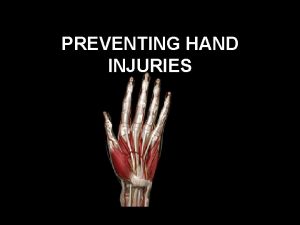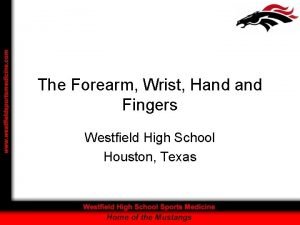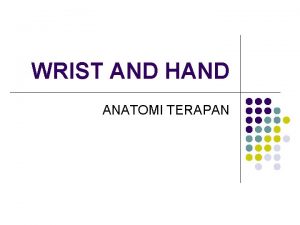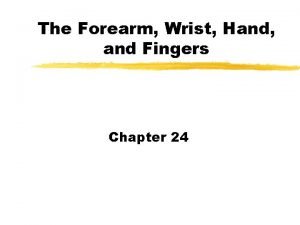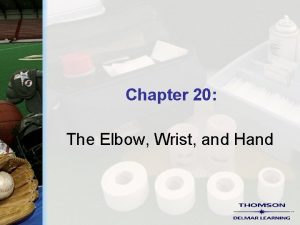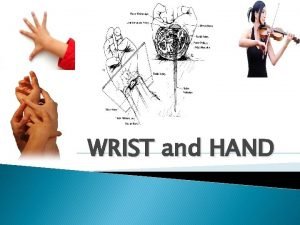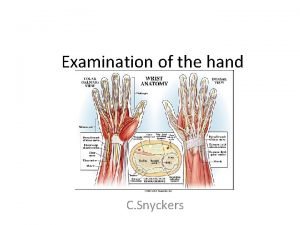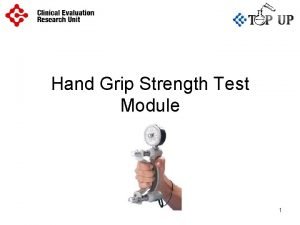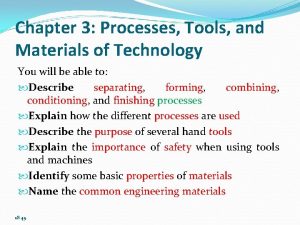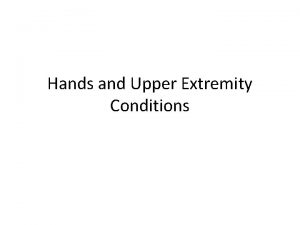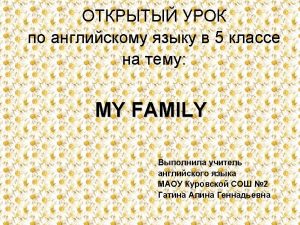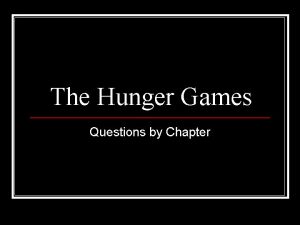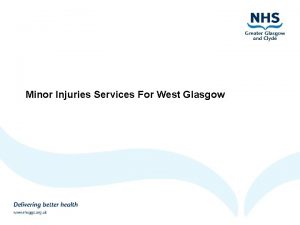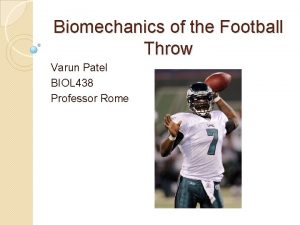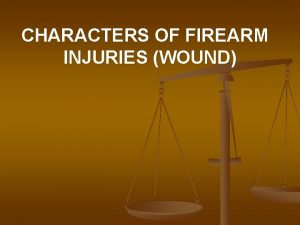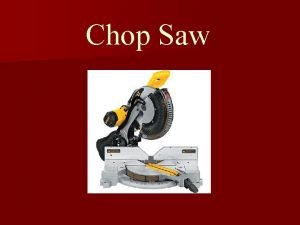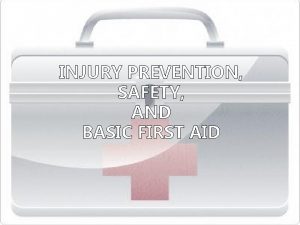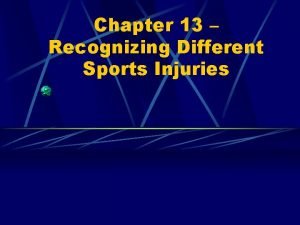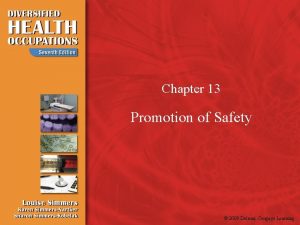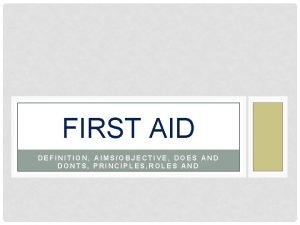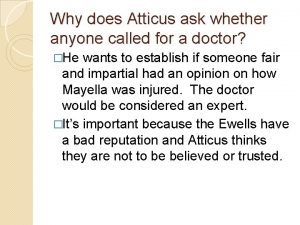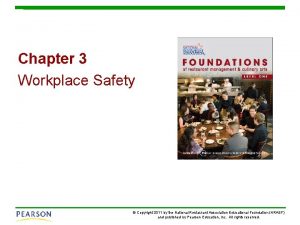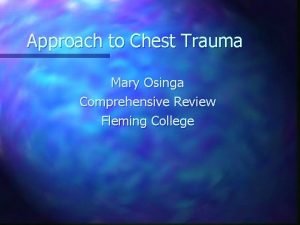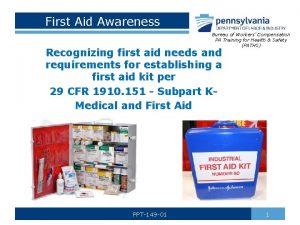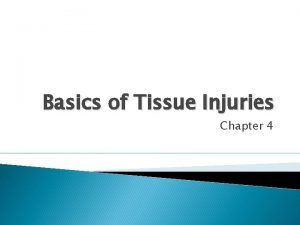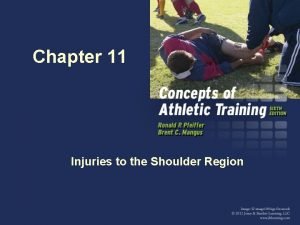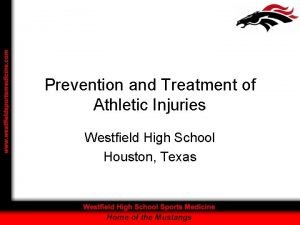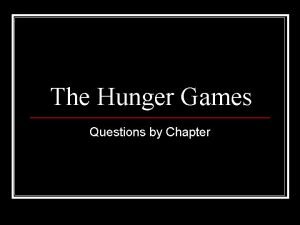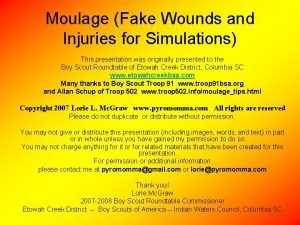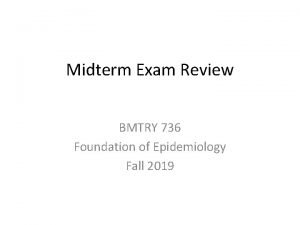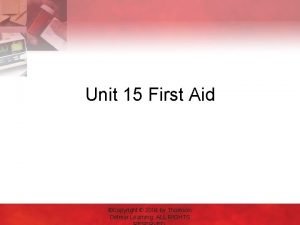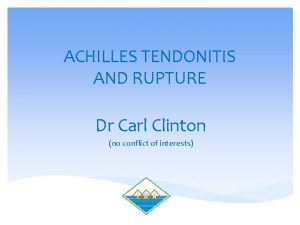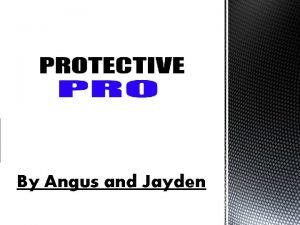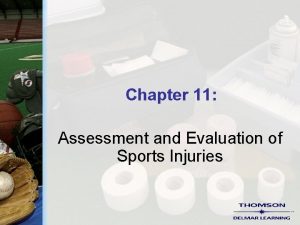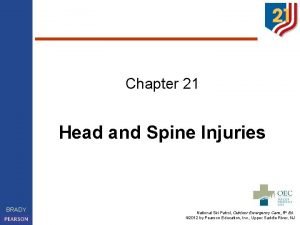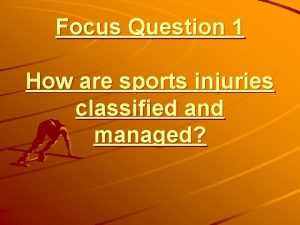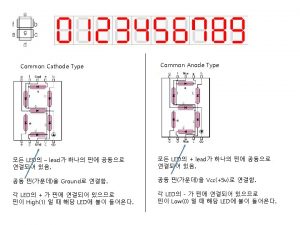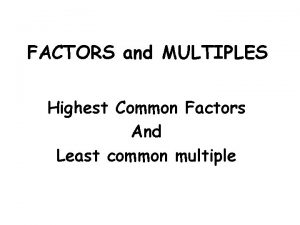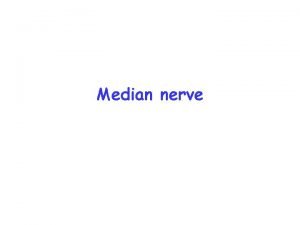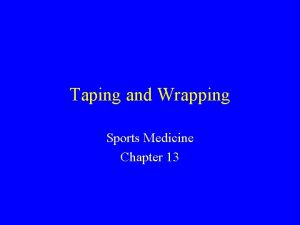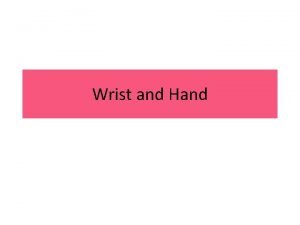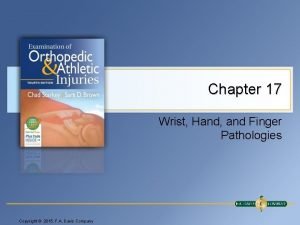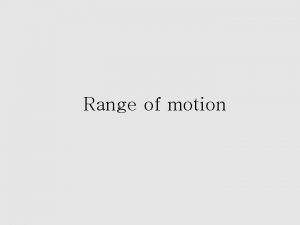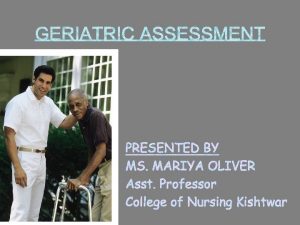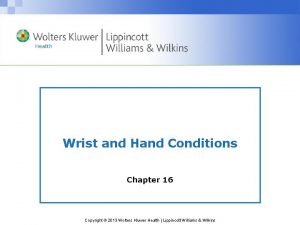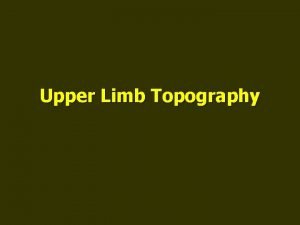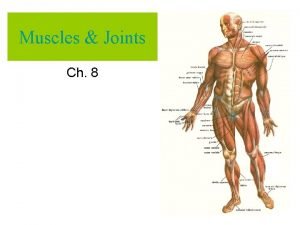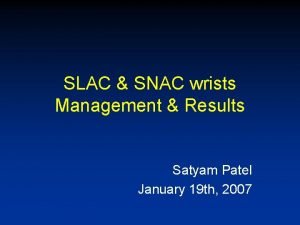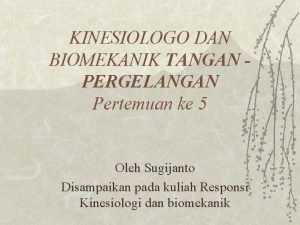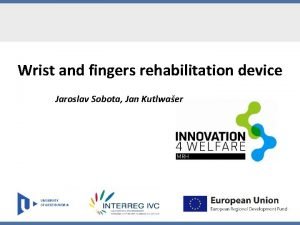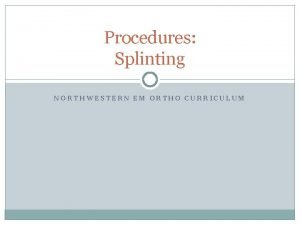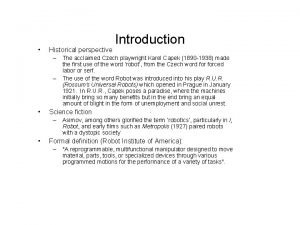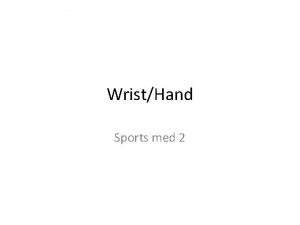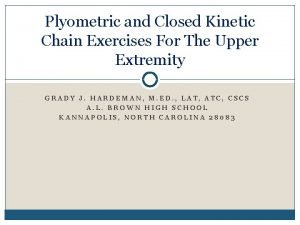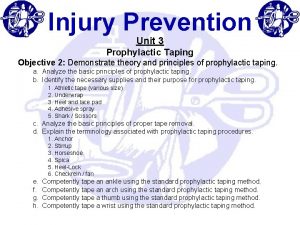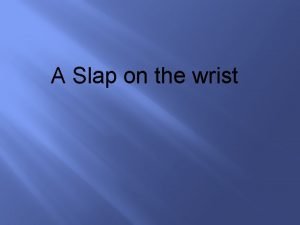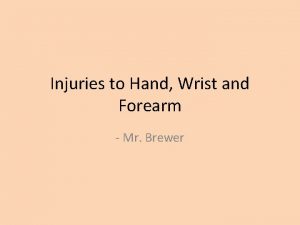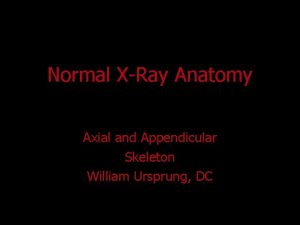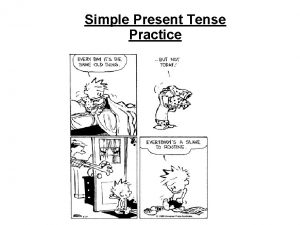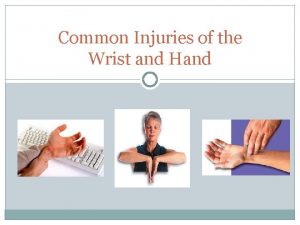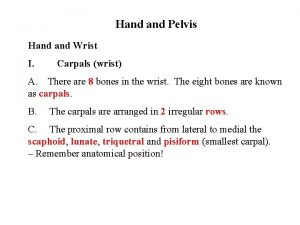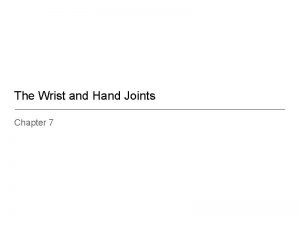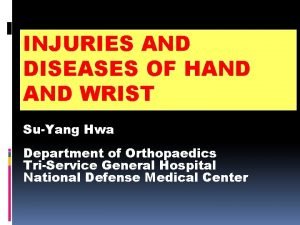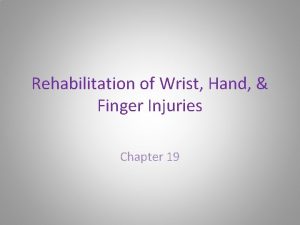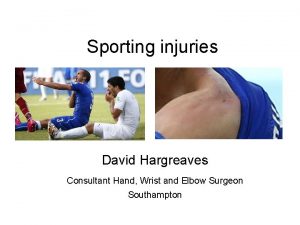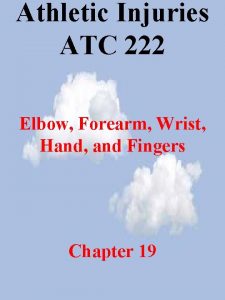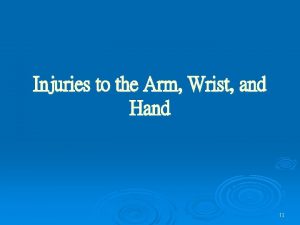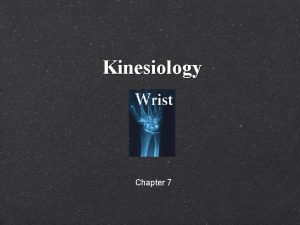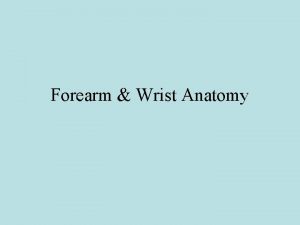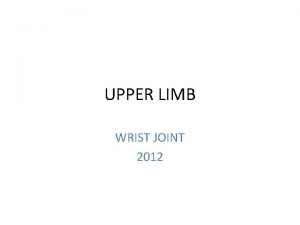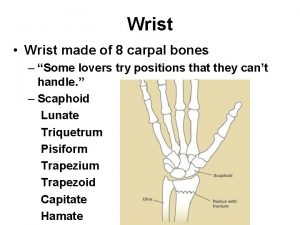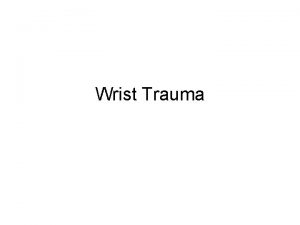Common Hand Wrist Injuries Andrew Getzin MD Cayuga




































































































- Slides: 100

Common Hand Wrist Injuries Andrew Getzin, MD Cayuga Medical Center Sports Medicine and Athletic Performance agetzin@cayugmed. org www. cayugamed. org/sportsmedicine Ithaca College

How I Will Approach Each Problem • • What is it? Does it need any special imaging? How do I treat it? What are the indications to refer?

Finger Injury Pearls • Treatment should restrict motion of the injured structures while allowing uninjured joints to remain mobile • Patients should be counseled that it is not unusual for an injured digit to remain swollen for some time and that permanent deformity is possible even after treatment

Finger Pathology • Ligament/tendon injuries – Mallet Finger – Jersey Finger – Central slip extensor tendon injury (Boutonniere Deformity) – Collateral ligament injury – Volar plate injury – Skier’s thumb • Fractures, Dislocations – Distal Tuft Fractures/Crush injury – Phalange fractures – Metacarpal fractures • Boxer’s fracture – Dorsal PIP dislocations

Finger Anatomy

Finger Case 1 During infield practice a high school baseball player injured his dominant right pinky while covering his glove to field a grounder. The ball longitudinally hit his right 5 th finger. He developed pain but kept playing. After practice, he noticed that he was unable to fully extend his distal phalange. He buddy taped it over the next few weeks but ultimately developed an extension lag that limits his ability to type but with no other functional limitations from the injury.

Mallet Finger (Baseball Finger) • Injury to the extensor tendon at the DIP joint • Most common closed tendon injury of the finger • Mechanism: object striking finger, creating forced flexion • Tendon may be stretched, partially torn, or completely separated by a distal phalanx avulsion fracture

Mallet Finger Presentation • Pain at dorsal DIP joint • Inability to actively extend the joint • Characteristic flexion deformity • On exam, very important to isolate the DIP joint to ensure extension from DIP and not the central slip • If can’t passively extend consider bony entrapment • All of these need x-rays

Mallet Finger Treatment • • • Splint DIP in neutral or slight hyperextension for 6 weeks Cochrane review- all splints same results Surgical wiring does not improve outcome Office visit every 2 weeks If not extension lag at 6 weeks, splint at night and for activity for 6 weeks. Conservative treatment effective up to 3 months delayed presentation Handoll. Interventions for treating mallet finger injuries. Cochrane Database 2004

Mallet Finger Referral • Bony avulsion >30% of joint space • Inability to achieve passive extension • Despite proper treatment permanent flexion of the fingertip is possible • No fracture reduction in the splint

Finger Case 2 19 year old Ithaca College football player, defensive back was holding onto the running back by his jersey trying to tackle him but the back broke the tackle. The defensive player developed sudden distal 4 th finger pain and was unable to fully flex the DIP joint.

Jersey Finger

Flexor Digitorum Profundus Tendon Injury (jersey finger) • Athlete’s finger catches another player’s clothing • Forced extension of the DIP joint during active flexion • 75% occur in the ring finger • Force can be concentrated at the middle or distal phalanx

Jersey Finger Presentation • Pain and swelling at the volar aspect of DIP joint • Can often feel fullness proximally if tendon retracted • Need to isolate the DIP to properly test

Jersey Finger Physical Exam

Jersey Finger Treatment/ Referral All need to be referred for surgery immediately

Central Slip Extensor Tendon Injury - Boutonnière deformity • PIP joint is forcibly flexed while actively extended • Volar dislocation of the PIP joint • Examine with PIP joint in 15 -30 degrees of flexion, can’t active extend but can passively extend • Tenderness over dorsal aspect of the middle phalanx

Central Slip Extensor Tendon Injury Treatment • A delay in proper treatment will cause boutonniere deformity • Deformity can develop over several weeks or occasionally acutely • Splint PIP in extension for 6 weeks • Can still play sports

Central Slip Extensor Tendon Injury Referral • Avulsion fracture involving more than 30 percent of the joint • Inability to achieve full passive extension

Collateral Ligament Injuries • • • Forced ulnar or radial deviation Can cause partial or complete tear PIP is usually involved Present with pain at the affected ligament Evaluate with involved joint at 30 degrees of flexion and MCP at 90 degrees of flexion

Collateral Ligament Injuries. Treatment • If joint stable and no large fracture- can buddy tape • Never leave the pinky alone • ? Physical Therapy- if joint stiff

Collateral Ligament Injuries. Referrals • Unstable joint • Large associated fracture • Injury in a child

Volar Plate Injury • Hyperextension, such as dorsal dislocation • PIP is usually affected • Collateral damage is often present • The loss of joint stability can cause hyperextension deformity

Volar Plate Injury- Diagnosis • Maximal tenderness at volar aspect of affected joint • Bruising, swelling • Full extension and flexion possible if joint stable • Collaterals should be tested • Radiographs may show an avulsion fracture at the base of involved phalanx

Volar Plate Injury- Treatment • Progressive splinting starting at 30 degrees flexion • Followed by buddy taping • If less severe, can buddy tape immediately • Can play sports if splinted

Volar Plate Injuries- Referral • Unstable joint • Large avulsion fragment


Finger Case #3 Ultimate frisbee player tried dove to block an opponents disc and he jammed his thumb on the ground. He was able to keep playing but it swelled and became ecchymotic.

Ulnar Collateral Ligament Injury of the Thumb (Skier’s Thumb)(Game. Keeper’s Thumb) • Caused by forced abduction of the 1 st MCP joint • Left untreated the joint will be unstable with weak grip strength

Skier’s Thumb- Diagnosis • Difficulty opposing pinky to thumb • Swelling and black and blue over thenar eminence • Can’t hold an OK sign • Consider digital block and to facilitate ligament testing

Stener Lesion

Skier’s Thumb Grading/Treatment • Grade 1 – Pain without instability with stress – Splinting 1 -2 weeks • Grade 2 – Pain with mild instability: gapping <20 degrees – Casting 3 -6 weeks • Grade 3 – Stenner’s Lesion – Instability: gapping > 20 degrees or > 35 degrees compared to unaffect thumb – Early surgical intervention within 2 -3 weeks

Skier’s Thumb Treatment

Skier’s Thumb Referral • Fracture • Unstable joint • Stener lesion

Distal Tuft Fractures • Common due to crush injuries • Painful • Splint in extension for 3 weeks

Fraction Alignment

Proximal and Middle Phalange Fractures • Most common in athletes – Fall or direct blunt trauma • More difficult than metacarpal fractures • Close relationship between fractured bone and pulley system

Phalanage Fracture Treatment • Early motion (3 -5 days) • Splint and take out • Can buddy tape

Proximal Phalange Fractures. Referral • Inability to maintain proper alignment • Rotation • Irreducible Injury • Any intra-articular fracture

Finger Case 4 16 year old baseball player had a frustrating discussion with his coach about playing time so punched a locker. He immediately developed pain over the outside aspect of his right hand lost the normal morphology of the 5 th knuckle.

Metacarpal Fractures • Most common hand fracture – 30 -35% • Usually involves the neck • Fight or fall common mechanism • 4 TH and 5 th most common fractures

Metacarpal Fractures Diagnosis • Present with edema over the dorsum of the hand • Point tender • Ecchymosis • The distal fragment usually displaces volarly due to the interosseous muscles • Radiographs: AP, lateral, oblique

Metacarpal Fracture Treatment • Angulation up to 40+ degrees can be tolerated • Attempt reduction? • Different cast types Statius, Arch Orthop Trauma Surg 2003; 123: 534 -7

Metacarpal Fracture-Complications • Malrotation • Common with spiral or oblique fractures • Greater than 10% malrotation leads to scissoring effect of the fingers • Metacarpal head – Loss of knuckle

Metacarpal Fracture Referral • Rotation • Angulation > 70 degrees • Preference

Proximal PIP dorsal dislocation 20 year old Ithaca College football defensive lineman ran to the sideline with right 4 th finger pain and deformity. He clearly had a dorsal PIP dislocation. Gentle longitudinal traction resulted in joint relocation. No visible deformity was apparent after relocation and he had passive FROM at DIP and PIP. The finger was buddy taped and the athlete returned to play. X-ray following the game revealed soft tissue swelling. He was buddy taped and finished his season.

Proximal PIP dorsal dislocation (Coach’s Finger) • Most common dislocated joint in the body • Can injure the volar plate or cause an avulsion fracture of the middle phalanx

Proximal PIP dorsal dislocationrelocation • Reduce via gentle longitudinal traction • If initially unsuccessful should hyperextend the distal portion to unlock • If not done <1 hour consider a digital block

Post Reduction Care • Radiographs should be obtained to ensure joint congruity • Examine collaterals • PIP should be splinted in less than 30 degrees

Proximal PIP Dorsal Dislocation. Referral • Avulsion fracture > 1/3 of joint space • Irreducible fracture • Instability post-reduction

WRIST

Wrist Pathology • Fracture – Scaphoid • Ligament-Tendon Injuries – TFCC tear – Scapholunate dissociation – De. Quervain’s – Intersection Syndrome – Ganglion Cyst • Nerve Injury – Carpal tunnel • Other – Kienbocks

Wrist Case 1 • 24 -year-old male FOOSH (fell on outstretched hand) while skiing over the weekend • Seen at the mountain clinic and told “wrist sprain”

Scaphoid Fracture • Most common fractured bone in the wrist • Peanut shaped bone that spans both row of carpal bones • Does not require excessive force and often not extremely painful so can be delayed presentation

Scaphoid Fracture Presentation • Pain over the anatomic snuff box • Pain is not usually severe • Often present late

Scaphoid Fracture Pathoanatomy • Blood supplied from distal pole • In children, 87% involve distal pole • In adults, 80% involve waist • Treatment depends on location of fracture

Imaging • AP, lateral, oblique and scaphoid view • Radiographs can be delayed for up to 4 weeks • ? MRI, bone scan, or treat and repeat film

Scaphoid Fracture Treatment • Cast 6 -12 weeks • Short arm vs. long arm • Follow patient every 2 weeks with x-ray • CT and clinical evaluation to determine healing • Consider screwing early

Non Operative Treatment. Disadvantages • • • Nonunion rate 5 -55% Delayed union Malunion “cast disease”- joint stiffness Prolonged immobilization- sometimes >12 weeks Loss of time from employment and avocations

Scaphoid Fracture - Referral • Angulated or displaced (1 mm) • Non-union or AVN • Proximal fractures • Late presentation • Early return to play desired

Union Rates 100%

Wrist Case 2 Soccer player has pain in ulnar side of wrist after a fall

Triangular Fibrocartilage Complex (TFCC) Tear • Fall on dorsiflexed and ulnar deviated wrist • Axial load with forearm in hyperpronation • Positive ulnar variance predisposes to injury

TFCC Tear Diagnosis • Exam – Ulnar sided wrist pain – Often experience a click • Imaging – Radiographs – MR arthrogram

TFCC Tear Treatment • • Splinting Time Injection Surgical treatment – – Debridement Repair Open vs. arthroscopic Ulnar shortening osteotomy

TFCC Tear Referral • Pain • They take a long time to get better- 3 -6 months of splinting

Wrist Case 3 25 -year-old tennis player twists wrist as he falls backwards reaching for a lob

Scapholunate Dissociation • Most common ligamentous instability of the wrist • Patients may have high degree of pain despite apparently normal radiographs • Physicians should suspect this injury if patient has wrist effusion and pain seemingly out of proportion to the injury • If improperly diagnosed can lead to chronic pain • Located proximal axial line from 3 rd metacarpal

Scapholunate Dissociation. Diagnosis • Exam – Watson’s test – Scaphoid shuck test – Pain/swelling over dorsal wrist, proximal row • Imaging – Plain films: >3 mm difference on clenched fist view – Scaphoid ring sign

Scapholunate Dissociation Treatment • If discovered within 4 weeks, surgery • After 4 weeks, conservative treatment reasonable – Bracing – NSAIDS – Consider evaluation by hand surgery to confirm no surgery needed

Scapholunate Ligament Dissocation Referral • All will go onto to cause some problem • Allow the specialist to make the ultimate decision

Wrist Case 4 The Ithaca College starting softball shortstop presented with pain at the base of her left thumb. It was aggravated by hitting when she rolled her left hand over the top.

De. Quervain’s Tenosynovitis • Pain due to inflammation of the short extensor and abductor tendons of the thumb • Repetitive or unaccustomed griping and grasping causes friction over the distal radial styloid

De. Quervain’s Tenosynovitis: Diagnosis • Swelling and pain over 1 st dorsal compartment • +Finkelstein’s test

De. Quervain’s Tenosynovitis: Treatment • Splint • Injection- 1 st line – up to 90% are pain free if injected within 6 months • Splinting performs poorly in comparison to steroid injection Coldham F. . British Journal of Hand Therapy. 2006

De. Quervain’s Tenosynovitis: Referral • Recurrence despite repeated injections

Wrist Case #5 An Ithaca College crew athlete presented following spring break training trip in Georgia. She reported pain distal dorsal medial forearm, accompanied by swelling, and palpable/audible crepitus. Her pain was exacerbated by feathering her oar.

Intersection syndrome • Friction point where muscle bellies of 1 st compartment. Abductor Pollicis Longus and Extensor Pollicis Brevis cross 2 nd and 3 rd dorsal compartments • Inflammatory peritendinitis • Common with rowers due to clenched fist and thumb abduction • Friction and crepitus felt 4 -5 cm proximal to radial styloid with rest flexion and extension and radial deviation

Intersection Syndrome Diagnosis • Pain and swelling about 2 -3 finger breadths proximal to dorsal wrist joint • Palpable crepitus (“squeaker’s wrist”

Intersection Syndrome Treatment • • • Splinting Activity modification Icing Nsaids Corticosteroid injection

Intersection Syndrome Referral • Failure of conservative measures • Tenosynovectomy and fasciotomy of abductor pollicis longus can be performed

Ganglion Cyst • Account for 60% of soft tissue, tumor-like swelling affected the hand wrist • Develop spontaneously in 2050 year olds • Female to male, 3: 1 • Cyst filled with soft, gelatinous, sticky, and mucoid fluid • Location – 65% dorsal scapholunate joint – 20 -25% volar distal aspect of the radius – 10 -15% flexor tendon sheath

Ganglion Cyst Diagnosis • Usually obvious on exam- may be helpful to flex and extend wrist • Radiographs, ultrasound, or MR not usually indicated

Ganglion Cyst- Treatment • Watchful waiting- most resolve spontaneously over time • Bible treatment- not recommended • Aspiration/Injection – No recurrence in 27 -67% of patients

Ganglion Cyst Referral • Patient preference • Pain • Cosmetic?

Carpal Tunnel Syndrome • Most common nerve entrapment disorder • Pain and parasthesias from high pressures in the carpal tunnel causing compression and inflammation of the median nerve • Carpal bones dorsally and transverse carpal ligament (flexor retinaculum) ventrally

Carpal tunnel syndrome

Hand Diagrams Sn = 0. 64; Sp = 0. 73 NPV = 0. 91 Tinel + hand diagram – PPV = 0. 71 Ann Intern Med 1990 Mar 1; 112(5): 321 -7.

Carpal Tunnel Syndrome

Sensitivity and Specificity • For both Phalen’s and Tinel’s is LOW – Phalen’s – Sn= 0. 75 ; Sp = 0. 47 – Tinel’s – Sn= 0. 60; Sp= 0. 67 Ann Intern Med 1990 Mar 1; 112(5): 321 -7 • Combine with hand diagram and history

Nerve Conduction Study • Can be painful and costly • Reserve for patients who – have failed conservative therapy – diagnosis is uncertain – late presentation with thenar wasting and motor dysfunction • False negative rates as high as 10% J Hand Surg [Am] 1995 Sep; 20(5): 848 -54

Carpal Tunnel Syndrome Diagnosis – Pain involves thumb, first two fingers and radial half of the fourth finger – Palpation: thenar eminence wasting – ROM: thumb weakness and difficulty pincher grasping – Diagnostic Tests or special maneuvers • Nerve conduction studies • Tinel’s • Phalen’s

Carpal Tunnel Syndrome Treatment • • • Ice Activity modification Workspace modification Splinting Injection Surgery

Carpal Tunnel Injection • Short term efficacy: RCT, 70% vs 34% at 2 weeks (steroid vs sham) – NNT = 2. 8 – Long-term benefits are more variable • 43% of patients above required referral to surgery Muscle Nerve 2004 Jan; 29(1): 82 -8 Injection technique: 23 -25 g needle; 1 -2 cc of lidocaine plus 20 -40 mg Methylprednisolone. Injected radial side of palmaris longus tendon

Carpal Tunnel Syndrome Referral • Constant numbness and tingling • Thenar eminence wasting • If get EMG, moderate to severe carpal tunnel or dennervation

Kienbock Disease • Avascular necrosis/vascular insufficiency – ? repetitive microfractures of lunate • Young adults 15 -40 years old • Risk factors: negative ulnar variance

Kienbock Disease: Diagnosis • EXAM – Wrist pain that radiates up the forearm – stiffness, tenderness, swelling over lunate • passive dorsiflexion of middle finger produces characteristic pain • Radiographs, MRI

Kienbock Disease • Stage I – IV – Stage I: MRI only – Stage II: Sclerosis – Stage III: Some collapse – Stage IV: Total collapse

Kienbock Disease: Treatment • Primarily surgical – EARLY: Radial shortening, ulnar lengthening – LATE: proximal row carpectomy, arthrodesis

Thank You!
 Intersection syndrome test
Intersection syndrome test Preventing hand injuries
Preventing hand injuries Scaphiod fracture
Scaphiod fracture Intercarpal joint
Intercarpal joint Anatomi wrist and hand
Anatomi wrist and hand Zhamate
Zhamate Chapter 20 the elbow wrist and hand
Chapter 20 the elbow wrist and hand Common track injuries
Common track injuries Ulnar paradox
Ulnar paradox Push pull turning method
Push pull turning method Adolph freiherr von eichendorff
Adolph freiherr von eichendorff Home hour hand hear
Home hour hand hear What time is it
What time is it Ulnar nerve special test
Ulnar nerve special test How to read dynamometer
How to read dynamometer Right hand in the air left hand in the air
Right hand in the air left hand in the air Mother father sister brother
Mother father sister brother Hand by hand
Hand by hand Put your right hand in the air
Put your right hand in the air It is used to process materials by hand
It is used to process materials by hand Ape hand vs hand of benediction
Ape hand vs hand of benediction Man machine chart is also known as
Man machine chart is also known as Handsoft pro
Handsoft pro Father mother sister brother hand in hand with one another
Father mother sister brother hand in hand with one another Common hand tools in electronics
Common hand tools in electronics Why does katniss detest haymitch?
Why does katniss detest haymitch? Stobhill miu
Stobhill miu Biomechanics throwing football
Biomechanics throwing football Characters of firearm injuries
Characters of firearm injuries Discoid miniscus
Discoid miniscus Tnt swimming
Tnt swimming Chapter 17:11 providing first aid for sudden illness
Chapter 17:11 providing first aid for sudden illness Chop saw injuries
Chop saw injuries Injury prevention, safety and first aid
Injury prevention, safety and first aid Chapter 13 worksheet recognizing different sports injuries
Chapter 13 worksheet recognizing different sports injuries Chapter 13:2 preventing accidents and injuries
Chapter 13:2 preventing accidents and injuries Strickler spine and sport
Strickler spine and sport Hammock carry drawing
Hammock carry drawing What does atticus ask mayella
What does atticus ask mayella Which osha document summarizes occupational injuries
Which osha document summarizes occupational injuries Battering intentional or unintentional
Battering intentional or unintentional Pallet jack injuries
Pallet jack injuries Climatic injury
Climatic injury Injuries to muscles and bones chapter 15
Injuries to muscles and bones chapter 15 Tim madsen aspen
Tim madsen aspen Deadly dozen chest injuries
Deadly dozen chest injuries Pa wc bureau
Pa wc bureau Chapter 4 basics of tissue injuries
Chapter 4 basics of tissue injuries Chapter 11 injuries to the shoulder region
Chapter 11 injuries to the shoulder region Chapter 28 head and spine injuries
Chapter 28 head and spine injuries Westfield sports injuries
Westfield sports injuries Chapter 23 hunger games
Chapter 23 hunger games How to make fake skin with vaseline and cornstarch
How to make fake skin with vaseline and cornstarch The cause-specific mortality rate from roller-skating was:
The cause-specific mortality rate from roller-skating was: Chapter 12 lesson 4 fitness safety and avoiding injuries
Chapter 12 lesson 4 fitness safety and avoiding injuries Chapter 14:3 observing fire safety
Chapter 14:3 observing fire safety Unit 15:4 providing first aid for shock
Unit 15:4 providing first aid for shock Tendon injuries clinton
Tendon injuries clinton Injuries first aid
Injuries first aid Sports injuries angus, on
Sports injuries angus, on Bo taoshi injuries
Bo taoshi injuries Chapter 11 assessment and evaluation of sports injuries
Chapter 11 assessment and evaluation of sports injuries Chapter 21 caring for head and spine injuries
Chapter 21 caring for head and spine injuries How are sports injuries classified and managed
How are sports injuries classified and managed Intentional fallacy nedir
Intentional fallacy nedir Chapter 4 preventing injuries through fitness
Chapter 4 preventing injuries through fitness Climatic injury
Climatic injury Jones and bartlett learning
Jones and bartlett learning Factors 0f 18
Factors 0f 18 Common factors of 20 and 24
Common factors of 20 and 24 Common anode and common cathode
Common anode and common cathode Multiples of 9 and 21
Multiples of 9 and 21 Factor tree of 48
Factor tree of 48 Highest common factors and lowest common multiples
Highest common factors and lowest common multiples Wrist anatomy nerves
Wrist anatomy nerves Shin splint tape wrap
Shin splint tape wrap Fibro osseous tunnel
Fibro osseous tunnel Wrist joint clinical anatomy
Wrist joint clinical anatomy Where is the axis for flexion and extension of the elbow?
Where is the axis for flexion and extension of the elbow? Platellar
Platellar Wrist ranges of motion
Wrist ranges of motion Fossa axilaris
Fossa axilaris Motec wrist
Motec wrist Square window newborn
Square window newborn Synarthroidal
Synarthroidal Slack wrist
Slack wrist Scapoideum
Scapoideum Spherical wrist robot
Spherical wrist robot Wrist excersises
Wrist excersises Buddy splint indication
Buddy splint indication Wrapping a wrist with ace bandage
Wrapping a wrist with ace bandage Spherical wrist dh parameters
Spherical wrist dh parameters Wrist flexors
Wrist flexors Plyometric
Plyometric Thumb taping techniques
Thumb taping techniques Slap on the wrist idiom
Slap on the wrist idiom Wrist size and body frame
Wrist size and body frame X ray findings in rickets
X ray findings in rickets Extensor digitorum tear
Extensor digitorum tear Wrist x-ray anatomy
Wrist x-ray anatomy Simple affirmative sentences
Simple affirmative sentences

